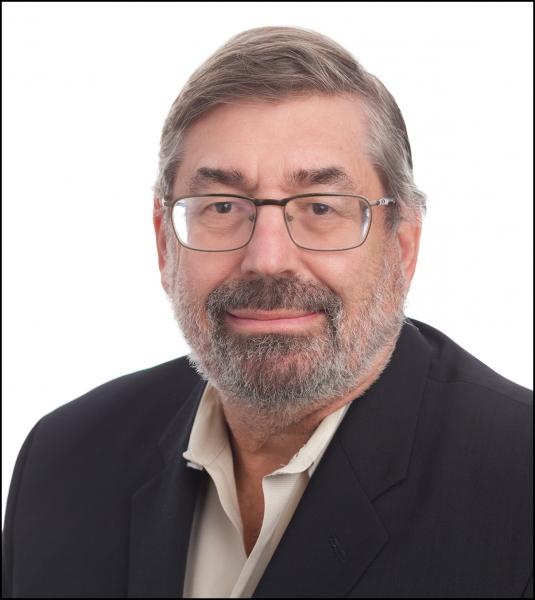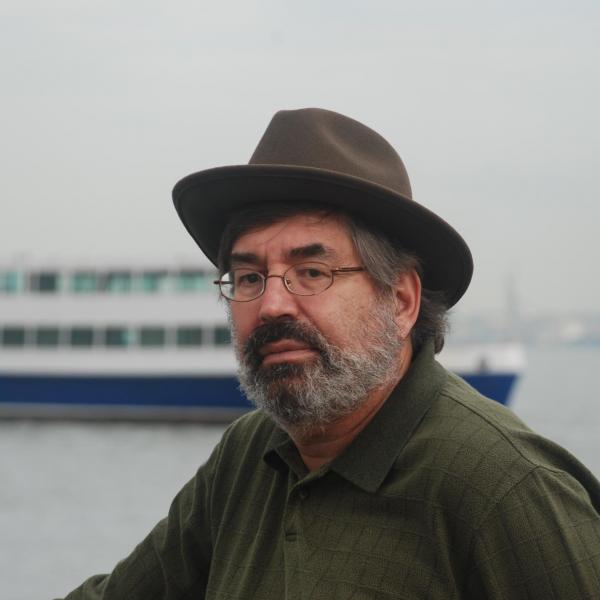
By Steve Flamisch
David H. Bensman, a respected professor and labor historian who retired last month as the longest-serving active faculty member in the Rutgers School of Management and Labor Relations, died on July 25. He was 70.
“David made a major contribution to scholarship on labor history specifically and the labor movement more broadly,” Dean Adrienne Eaton said. “But most importantly, he was a caring mentor and friend to dozens of labor studies students over the multiple decades of his career at Rutgers and made a significant difference in many lives. I am moved by the emails I've been receiving from many people who felt supported and cared for by David.”

An award-winning scholar with a passion for the printed page and a deep respect for workers and the dignity of work, Bensman wrote or co-authored seven books, three book chapters, and countless journal articles, reports, and opinion pieces. His 1987 book, Rusted Dreams: Hard Times in a Steel Community, co-authored by Roberta Lynch, examined how the decline of the American steel industry decimated one South Chicago neighborhood. It was nominated for a National Book Award.
“I was fortunate to have Dr. Bensman as my professor in the late eighties,” said Angelica Santomauro, who earned her Ed.D. at Rutgers in 1989. “I went on to co-teach a course with him and serve as a substitute for his class. He became a friend, mentor and supporter of the American Labor Museum, where I now serve as Director. David Bensman is truly one of the reasons why I fell in love with labor history, which changed my life’s course.”
Bensman, who lived in West Orange and worked in New Brunswick, also studied education reform, precarious work, and the history of the American hat-making industry. In recent years, his research focused on the misclassification of employees as independent contractors.
His 2009 report, Port Trucking Down the Low Road: A Sad Story of Deregulation, revealed how owner-operator truck drivers, strapped for cash and unable to afford new rigs, sit in line for hours at the nation’s ports. The aging, idling trucks pollute the air in surrounding neighborhoods as the overworked drivers wait to pick up loads.
“Twelve-hour days without compensation for overtime have become the norm,” he wrote in a an article for The American Prospect. “Drivers skimp on maintenance, which causes their engines to emit excessive cancer-causing diesel particulates. An owner-operator may gross around $80,000, minus costs averaging $52,000, and take home perhaps $28,000 before taxes. All the risks are the driver's.”
Putting his research into action, Bensman helped to organize the Coalition for Healthy Ports, a group of environmental, labor, faith, community, environmental justice, and business organizations that are fighting to make the ports of New York and New Jersey more sustainable.
But Bensman’s greatest contributions may have come in the classroom, where he helped to shape two generations of labor activists, organizers, scholars, and progressive political leaders.
He mentored Analilia Mejia, who went on to serve as executive director of the New Jersey Working Families Alliance and as national political director for Bernie Sanders’ 2020 presidential campaign and now his Senate office. She served as the senior advisor for the task forces charged with uniting the policies of Sanders and the presumptive Democratic nominee, former Vice President Joseph Biden.
“He had the most gentle way to push me to do more, to be better, to ask all the questions and do the work,” Mejia said. “When I began my career as an organizer, he served as a source of information and counsel and years later, it was always empowering to have him treat me with greater equity; recognizing that I was advancing in my work but still generous enough to continue to teach and counsel.”
Susan Bisom-Rapp, a professor at Thomas Jefferson School of Law, described Bensman as “brilliant, passionate, warm, and very kind.” They served as members of an international, interdisciplinary team studying the rise of insecure employment. She recalled the last conference they attended together, at Middlesex University in London in 2016.
“I was struck by how much time David took to speak with the young scholars who were present,” Bisom-Rapp said. “He was encouraging about their work, interested in everything they had to say. This is the hallmark of a true scholarly mentor.”
 David Harlan Bensman was born in Syracuse, New York in 1949 and grew up in Great Neck. He completed his undergraduate work at the University of Chicago, where he helped to recruit Rev. Jesse Jackson to give a speech in the late 1960’s. Bensman got his start in union organizing, and he was a staunch protestor of the Vietnam War.
David Harlan Bensman was born in Syracuse, New York in 1949 and grew up in Great Neck. He completed his undergraduate work at the University of Chicago, where he helped to recruit Rev. Jesse Jackson to give a speech in the late 1960’s. Bensman got his start in union organizing, and he was a staunch protestor of the Vietnam War.
He earned two master’s degrees at Columbia University before receiving his Ph.D. in history there in 1977. He joined the Rutgers faculty the following year. He was appointed associate professor of labor studies and employment relations at SMLR in 1984 and promoted to full professor in 2002. He served as chair and director of the department’s undergraduate and graduate programs during his 42 years of service to the university.
Bensman is survived by his wife of 35 years, Josephine; a son, Joseph; three step-children, Jessie, Jean, and José; and two sisters, Rhea and Miriam.
Many of his writings are even more relevant today than when they left his fingertips, as the COVID-19 pandemic has brought the struggles of low-wage workers, temporary workers, and independent contractors into stark relief. He summed up labor’s challenge in 2014.
“Workers find themselves in an ill-defined borderland, a grey zone, where confusion reigns, standards are shifting, decreasing or disappearing, and abuse is rampant,” Bensman wrote. “While the increasing flexibility of work is creating new opportunities for innovation and entrepreneurship, the result for most workers is a retreat to conditions prevailing before regulation began, a jungle of insecurity and exploitation.”


